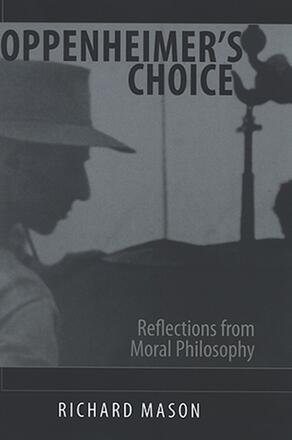
Oppenheimer's Choice
Reflections from Moral Philosophy
Alternative formats available from:
Studies J. Robert Oppenheimer’s choice to accept leadership of the Manhattan Project.
Description
In 1942, J. Robert Oppenheimer accepted the leadership of the Manhattan Project at the Los Alamos Laboratory, which produced the first atomic bomb three years later. This book examines the ethics of Oppenheimer's choice to take that job and our judgment of his acceptance, leading to the larger question of the meaning of moral judgment itself. Through an analysis of Oppenheimer's choice, Richard Mason explores questions of responsibility, the justification for the pursuit of scientific curiosity, the purity of research, and many other topics of interest in scientific ethics. This unique look at one man's choice brings out the necessary step from personal detail to abstract reflection—it may be easy to praise or condemn Oppenheimer's choice, but less easy to justify our praise or condemnation. Oppenheimer's Choice establishes the possibility of this kind of moral philosophy—neither "applied" nor "practical" ethics, but instead a sustained concentration on a single choice, and what it means.
Richard Mason (1948–2006) was a Fellow of Wolfson College at Cambridge. He is the author of Understanding Understanding and Before Logic, both also published by SUNY Press, and The God of Spinoza.